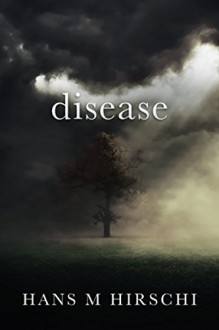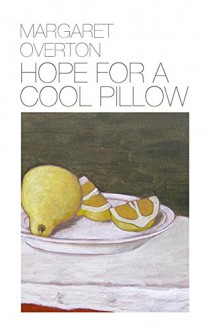


I have read quite a few books by Hans Hirschi (not all, but I might get there given time) and have enjoyed them, no matter what the genre. The author is not somebody who writes thinking about the market or the latest trend. He writes stories he cares about, and beyond interesting plots and fully-fledged characters, he always pushes us to think about some of the big questions: prejudice, ecology, poverty, child abuse, families, laws, gender, identity… If all of his stories are personal, however fictional, this novel is perhaps even more personal than the rest.
As a psychiatrist, I’ve diagnosed patients with dementia (Alzheimer’s disease or other types), I’ve assessed and looked after patients with dementia in hospital, and I have seen, second-hand, what the illness does to the relatives and friends, and also to the patients, but as an observer, from outside. I’ve known some people who have suffered from the condition but not close enough to be able to give a personal account.
The novel tries to do something quite difficult: to give us the insight into what somebody suffering from Alzheimer’s feels, what they think, and how they experience the process of losing their own memories and themselves. The book is written in a diary format, in the first person, by Hunter, a man in his forties who, after some episodes of forgetfulness, goes to the doctors and is diagnosed with early Alzheimer’s. He writes articles for a living, is married to Ethan, who is a high-school teacher, and they have a five-year-old daughter, Amy (born of a surrogate mother, and Ethan’s biological daughter). They live in Michigan, where they moved to from California, and therefore they are not legally married, as that was not an option at the time. To the worry of his illness and how this will affect him (Hunter’s mother also died of the condition, so he is fully aware of its effects on its sufferers), are added the worries about practicalities, about Amy’s care, about financial stability, about his own care, as they are not a couple with equal rights in the eyes of the law.
Hunter’s diary is framed by Ethan’s narration. Ethan finds the file of the diary a couple of years after Hunter’s passing and decides to publish it, mostly letting Hunter’s words speak for themselves, but at times he clarifies if something Hunter narrates truly happened or not, or gives us his own version of events (for instance, when Hunter gets lost). Although the story is mostly written by Hunter and told from the point of view of the sufferer, Ethan’s brief contributions are poignant and heart-wrenching, precisely because we do get the sense that he is trying so hard to be strong, fair, and to focus on his daughter. He accepts things as they are and is not bitter, but the heavy toll the illness has taken is clear.
The novel ends with a letter written by Amy. Although brief, we get another perspective on how the illness affects families, and through her eyes we get to know more about how Ethan is truly feeling. A deeply moving letter that rings true.
The characters are well drawn, and even when the progression of the illness means that some of the episodes Hunter describes might not be true, they still give us a good insight into his thoughts, his illusions, and his worries. He writes compellingly and beautifully (although there are is evidence of paranoia, ramblings, and some disconnected writing towards the end), and the fact that his writing remains articulate (although the gaps between entries increase as the book progresses and he even stops writing when he misplaces the file) fit in with research about preservation of those skills we have used the most and are more ingrained. Hunter pours into his diary his thoughts and experiences, some that he has never shared in detail with anybody (like being trapped at a hotel in Mumbai during a terrorist attack), and others that seem to be flights of fancy or wishful thinking. He shares his own opinions (his dislike of nursing homes, his horror at the thought of being looked after by somebody he doesn’t know, his worries about the future, his memories of the past…) and is at times humorous, at times nasty, at others indignant and righteous. He is not a cardboard cut-out, and neither are any of the other characters.
Apart from the personal story of the characters, we have intrusions of the real world, including news, court decisions, that ground the events in the here and now, however universal they might be, but wherever you live and whoever you are, it is impossible not to put yourself in the place of the characters and wonder what you would do, and how much more difficult things are for them because they are not a “normal” family.
This is an extraordinary book, a book that made me think about patients I had known with similar diagnosis, about the difficulties they and their families face (there are not that many nursing homes that accommodate early dementia, and most of those for elderly patients are not suited to the needs of younger patients), about end of life care, and about what I would do faced with a similar situation. The book does not shy away from asking the difficult questions, and although it is impossible to read it and not feel emotional, it tells the story with the same dignity it affords its main character.
Although there is a certain degree of intrigue from the beginning (we do not find the exact circumstances of Hunter’s death until very close to the end) that will, perhaps, contribute to reading it even faster, this book is for readers who are interested in dementia and Alzheimer’s (although it is not an easy read), who love well-drawn characters, deep psychological portrayals, and stories about families and their ties. A great and important book I thoroughly recommend and another first-rate addition to Mr. Hirschi’s oeuvre.
I received an ARC copy of this book and I freely decided to review it. Thanks to the author and the publisher for this opportunity.


Rating: 4.5* of five
My essay on the publishing house Outpost19 and Margaret Overton's deeply moving and supremely timely memoir is live at Expendable Mudge Muses Aloud: My Reading Life.
This slim book should, in a properly ordered world, ignite a nation-wide conversation about the events at the end of our lives. It is a wonderful book.

 Posted at my blog:Title: Pricing LifeAuthor: Peter A. Ubel, MDPages: 183 paperbackSummary: I will start off saying this book is bound to be super contentious given the current political atmosphere around health care and what our country should do about it. This book focuses on the US health care system and talks about something that apparently a lot of people hate: health care rationing. He starts by defining a working definition for health care rationing, since it is not something agreed upon at all. He continues by making the argument that we are getting to the point in health care progress that we really will have to ration health care services if we want to afford reasonable health care for everyone as a nation. The idea is that every year more and more expensive new therapies come out for the big scary diseases and most of the time they are highly unlikely to actually help that much, so where should the line be drawn of what is covered by health care providers and what isn’t?I found the book quite approachable for a non-premed college graduate and interesting. It obviously is a very difficult issue, but Ubel explains his thoughts and suggestions very well and it’s something I’m glad health care professionals might start thinking about, since as a patient I had no idea how unnecessarily expensive normal procedures were and how unhelpful a lot of screenings are to do annually. If you are interested in this sort of thing, I definitely recommend it as an interesting and engaging read.More reviews at http://www.onstarshipsanddragonwings.com/
Posted at my blog:Title: Pricing LifeAuthor: Peter A. Ubel, MDPages: 183 paperbackSummary: I will start off saying this book is bound to be super contentious given the current political atmosphere around health care and what our country should do about it. This book focuses on the US health care system and talks about something that apparently a lot of people hate: health care rationing. He starts by defining a working definition for health care rationing, since it is not something agreed upon at all. He continues by making the argument that we are getting to the point in health care progress that we really will have to ration health care services if we want to afford reasonable health care for everyone as a nation. The idea is that every year more and more expensive new therapies come out for the big scary diseases and most of the time they are highly unlikely to actually help that much, so where should the line be drawn of what is covered by health care providers and what isn’t?I found the book quite approachable for a non-premed college graduate and interesting. It obviously is a very difficult issue, but Ubel explains his thoughts and suggestions very well and it’s something I’m glad health care professionals might start thinking about, since as a patient I had no idea how unnecessarily expensive normal procedures were and how unhelpful a lot of screenings are to do annually. If you are interested in this sort of thing, I definitely recommend it as an interesting and engaging read.More reviews at http://www.onstarshipsanddragonwings.com/